New class gives opportunity for heritage speakers to learn Spanish
Spanish Teacher Kimberly Alligood lectures a class of students.
May 9, 2022
Before she came to Lab, junior Ilana Sancristobal went to middle school in Texas. There she took German as her world language because it was typically what students took if they already knew Spanish. The vast majority of students did. She learned Spanish from her family.
When she got to Lab in ninth grade, she decided to continue to study German for two years to fulfill her world language graduation requirement. If she were to have switched to Spanish, she would have had to restart at level one and take classes over the summer to catch up on material she missed because of her struggle with proper grammar.
For her junior year she wanted to take a class that was listed in the Program of Studies: Spanish for Heritage Speakers. Though she signed up for the class, it did not run because of a lack of enrollment. Ilana said the world language department suggested she could take the equivalent class at the University of Chicago, but she was unable to because it would have been a conflict with her schedule.
Spanish for Heritage Speakers needed to be easier for students to take, and it needed to run for next year, so an effort by students in the Latinos Unidos has ensured that the class will run for next year.
Latinos Unidos got Spanish for Heritage Speakers to run through student agency despite their struggles with the administration. The class will run for the first time after failing to run for the past 10 years, and it will run with the same students for two consecutive years.
Ilana sees a lot of potential benefits in the class running. In her mind, getting the class to run would help preserve the language, teach students more about their culture and will make future generations more comfortable taking Spanish as their world language.
“There’s always been a weird gray area of, should I take Spanish? Or should I just take another language?” Ilana said. “And the answers are different for everybody, but even then, when a lot of Spanish speaking kids go into Spanish classes, it’s always like, ‘Oh, you’re just in here to get an easy A.’ And then you know, it’s not always like that all the time.”
The class was originally created to run in 2011, but it failed to run for years because of a lack of people signing up for the class. According to assistant principal Zilkia Rivera-Vazquez, the class had very few students — and sometimes no students — sign up for it. The class easily got lost in the more than 100 other classes during course registration.
In 2015 the class was adjusted so that it counted for credits as a graduation requirement and renamed to Spanish for Heritage Speakers, but it still did not attract enough interest. The class is for experienced Spanish speakers who need to improve their grammar and expand their vocabulary, and where they will be able to learn about Latin American cultures, politics, geography, linguistics and more. This year, world languages department chair Dinah D’Antoni worked with Ms. Rivera-Vazquez to make sure that the class was available to students during the course request period, since they had formally asked for the class to run.
“So it was designed for students who, you know, use Spanish with family members, and are comfortable speaking, and hearing the language, but that, you know, they never had an academic level of Spanish because you speak at home, or with family in an everyday situation,” Dr. D’Antoni said.
After multiple students were unable to take the typical Spanish track because the school determined that they were too experienced in the language, they tried to take Spanish for Heritage Speakers but were unable to because of a lack of enrollment. Latinos Unidos became a resource for these students, to help them get the class to run.
Club adviser Sari Hernandez talked with Dr. D’Antoni and Ms. Rivera-Vazquez to coordinate their efforts to achieve their shared goal of getting the class to run. Dr. D’Antoni presented the class to club members, and several of them eventually signed up.
Ms. Rivera-Vazquez saw it as the perfect opportunity when students came to her and other faculty members to try to get Spanish for Heritage Speakers to run.
“And so we felt it was really important to them, but also to us as a school, to support our Latinx community that is growing,” Ms. Rivera-Vazquez said. “We’re excited. And so it’s both, right: The students were requesting it, we were excited about it. We know we have more kids coming from our broad Latinx community in Chicago and we were like, yes. This is it.”
… we felt it was really important to them, but also to us as a school, to support our Latinx community that is growing.
— Zilkia Rivera-Vazquez
Ilana was one of these students. She said she was lacking an understanding of Spanish grammar, and she also said she learned a lot of slang from learning the language at home.
After fulfilling her language graduation requirement at Lab by taking German, she was interested in taking Spanish for Heritage Speakers. However, since the class did not run, Dr. D’Antoni offered her the equivalent class at the University of Chicago, but Ilana was unable to because of a conflict in her schedule.
Much of the issue is caused by the fact that the Latino population at the school is so small that there are not enough students able and willing to take the class.
Ninth grader Isabella Alvarez wants to take the class because she feels she is lacking a complete understanding of fundamental grammar in Spanish. Latinos Unidos was a resource for her to help get her into the class. She thinks it’s important for future students to have this class as well.
“It’s just really important for it to be there, for it to be an option for the younger students,” Isabella said. “And honestly, it should be like an option for all of the other languages, too.”
The class is expected to run next year and because of all the efforts made by students, future students will no longer need to take the class they are uninterested in and will instead be able to honor their culture.
“Well, again, this is my first year at Lab, but something I noticed very quickly was that the student-run organizations here are really thoughtful in the requests they make. And so when this came to our attention coming from our student body, and as someone who also speaks Spanish and a native Spanish speaker, I could feel what it feels, to want to honor part of your culture in your own school,” Ms. Rivera-Vazquez said. “So we thought it was a beautiful request.”



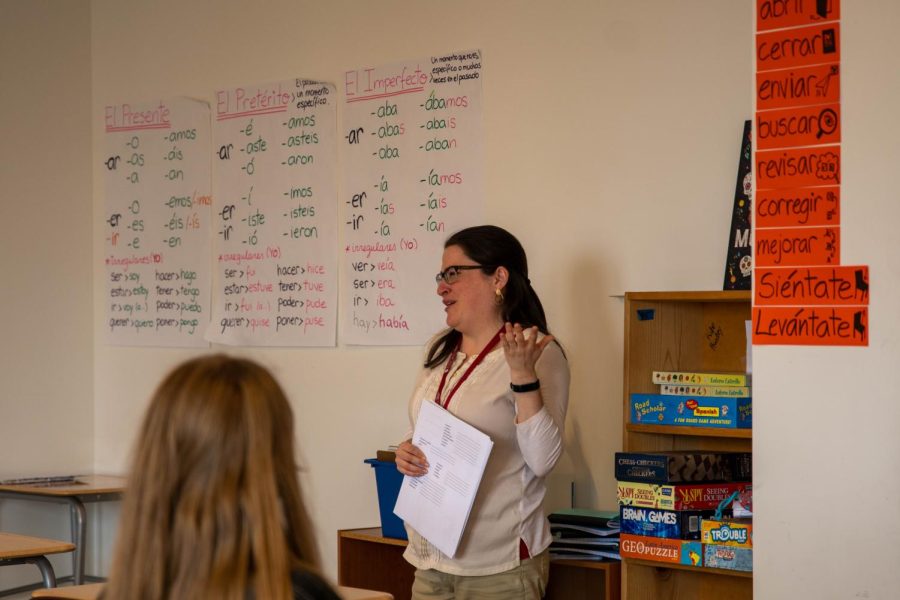
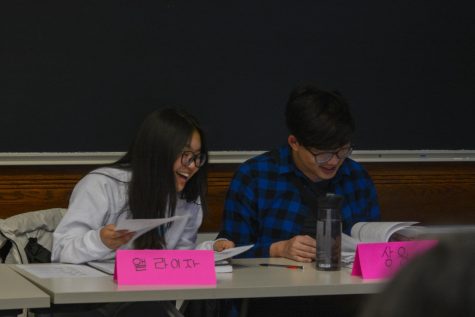
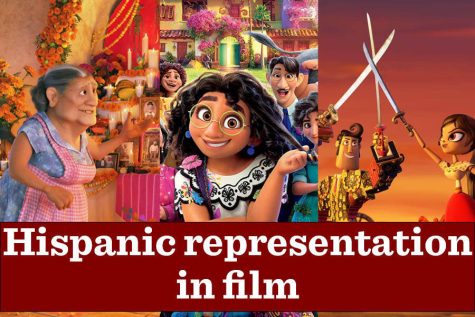
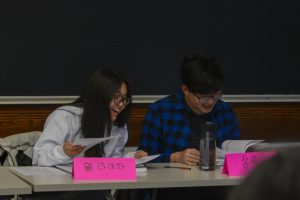
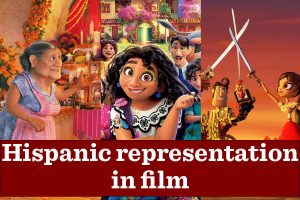



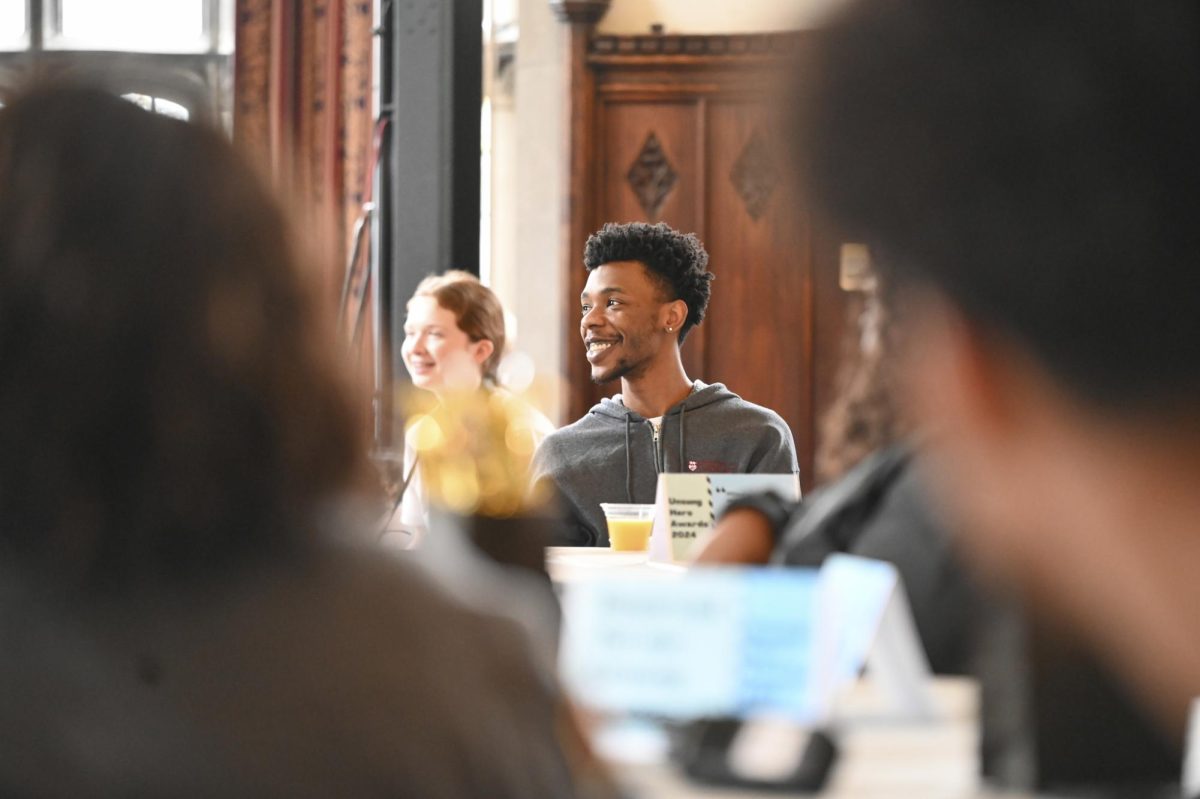
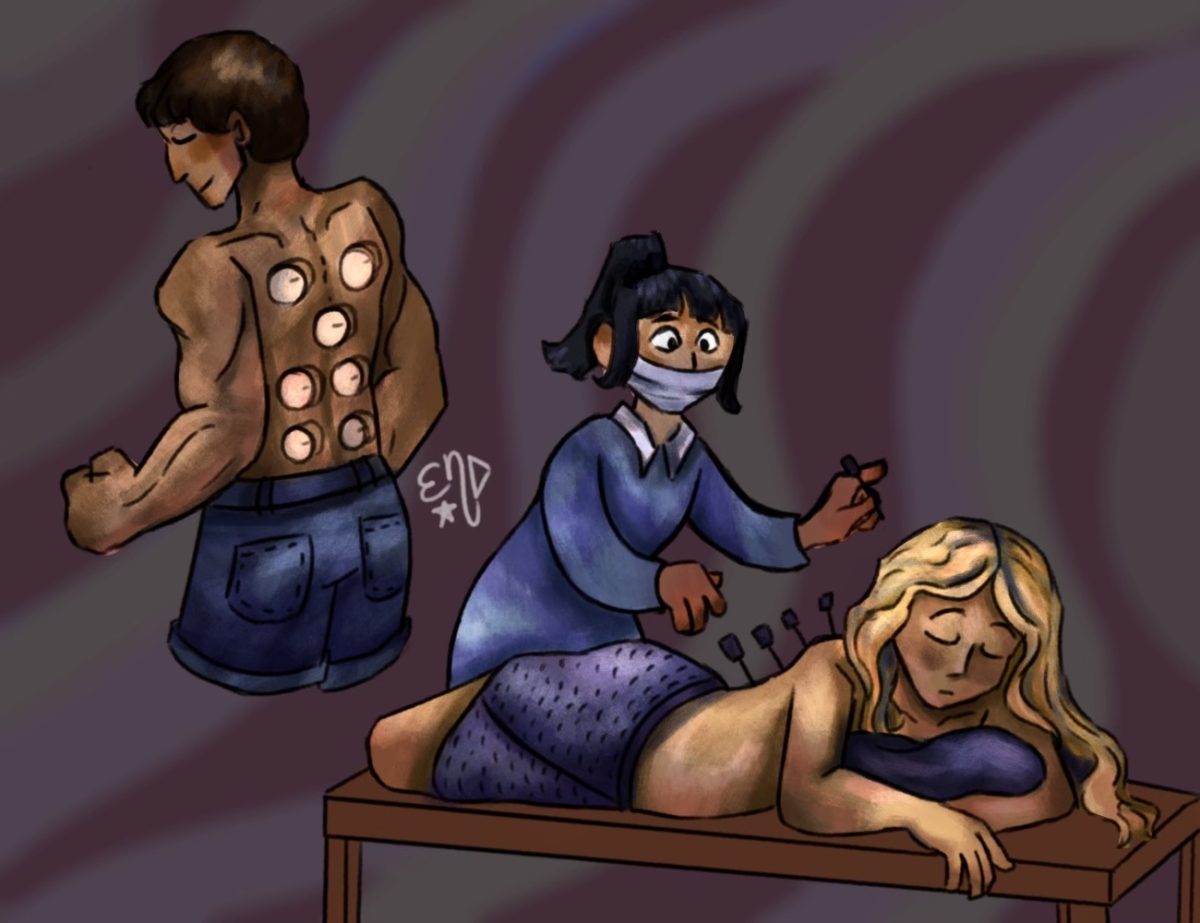
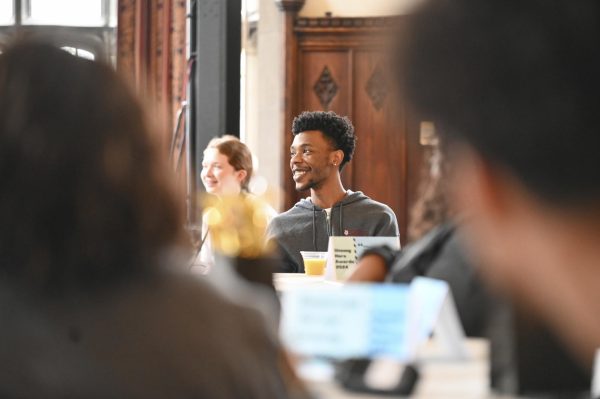
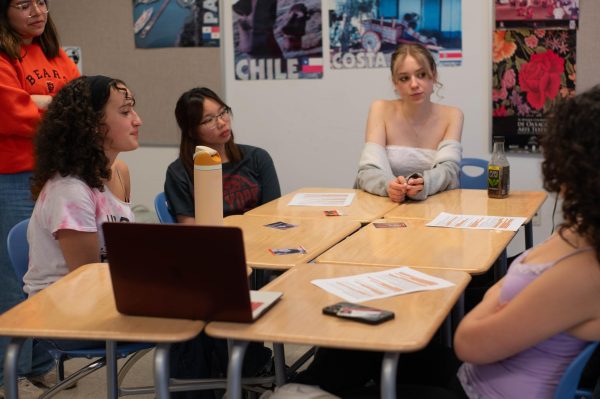



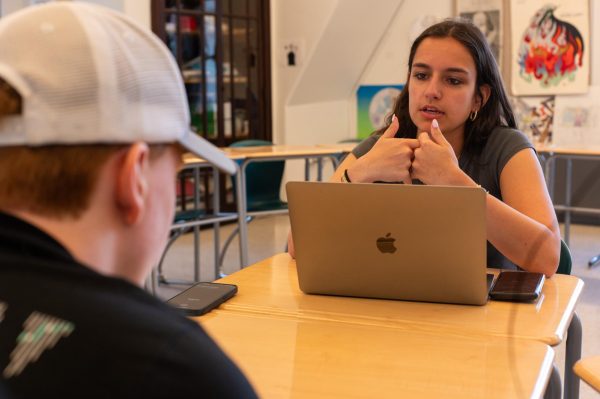
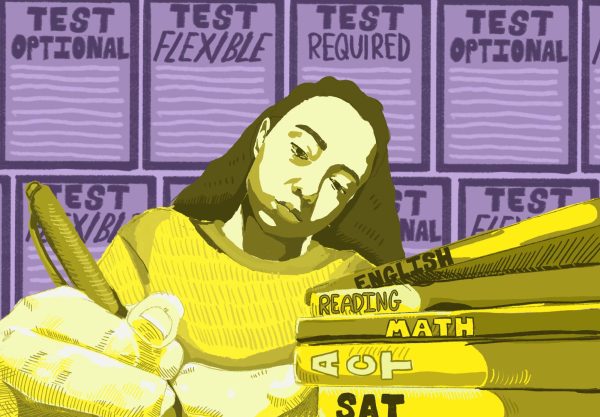
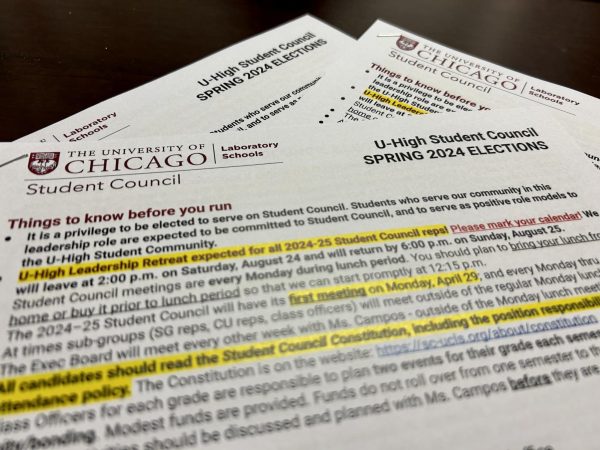
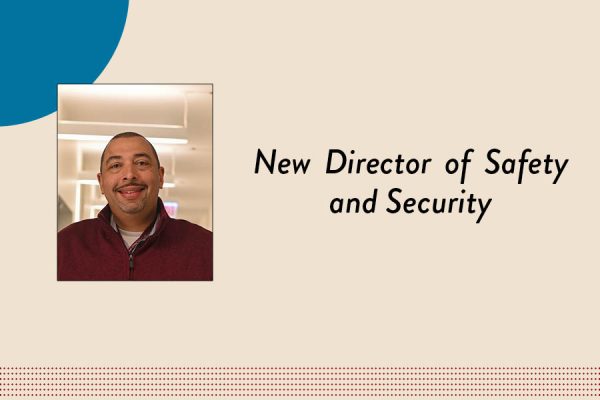
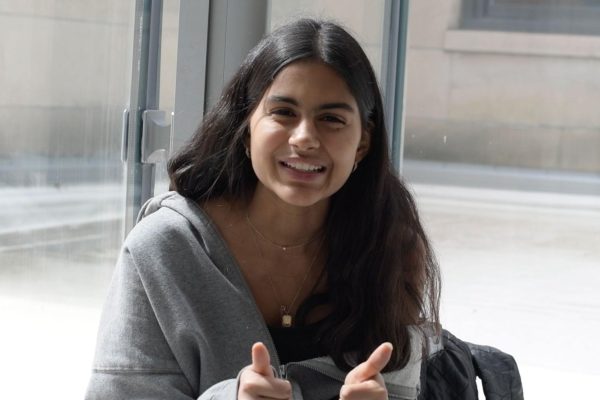
Carolyn Banner • May 10, 2022 at 10:41 am
Many thanks to the hard working students of Latinos Unidos for making this class available! As a parent of a rising 3rd grader who has a basic Spanish heritage language foundation, I really hope the class is successful and remains an option for future UHigh students from bilingual families.